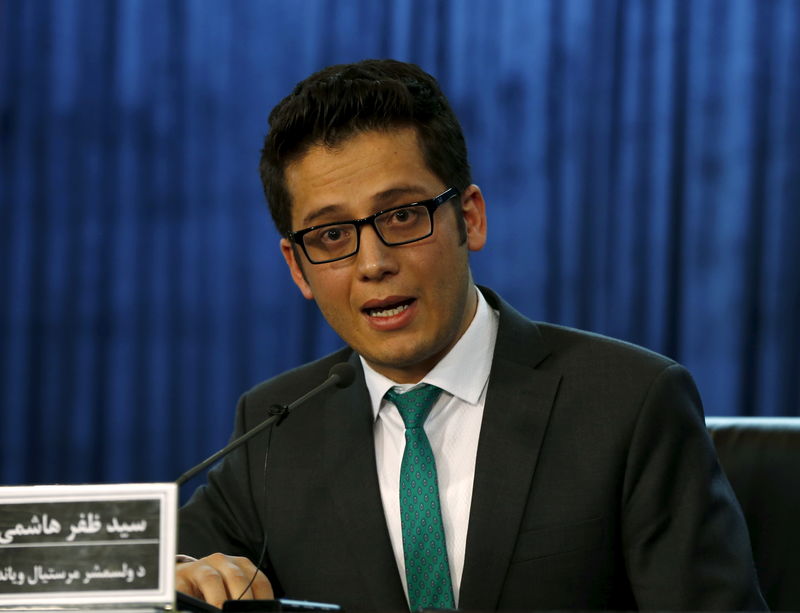By Mirwais Harooni and Jessica Donati
KABUL (Reuters) - Afghanistan said on Wednesday that Mullah Omar, the elusive leader of the Taliban movement fighting to topple the government, died more than two years ago.
The announcement came a day or so before a second round of peace talks had been tentatively scheduled, and news of the fate of the one-eyed Omar could deepen Taliban divisions over whether to pursue negotiations with Kabul and who should replace him.
Omar had not been seen in public since fleeing when the Taliban was toppled from power by a U.S.-led coalition in 2001, and there has been speculation for years among militant circles that he was either incapacitated or had died.
"The government ... based on credible information, confirms that Mullah Mohammad Omar, leader of the Taliban, died in April 2013 in Pakistan," the presidential palace said in a brief statement, without specifying what the information was.
"The government of Afghanistan believes that grounds for the Afghan peace talks are more paved now than before, and thus calls on all armed opposition groups to seize the opportunity and join the peace process."
The Taliban's regular spokesman could not be reached for comment through normal channels.
The White House said it was aware of reports of the death of Omar and believed them to be "credible." Spokesman Eric Schultz said U.S. intelligence continued to look into the matter.
Preparations had been under way for the next round of talks between the Afghan government and the Taliban, provisionally planned for Thursday or Friday in a location yet to be confirmed.
INTERNAL RIFT
President Ashraf Ghani is keen to broker a settlement with the insurgents, who have been gaining territory in pockets of the country and intensifying their attacks on military and political targets.
Thousands of civilians and security personnel are killed each year in the violence, which has worsened since NATO withdrew most of its forces from the country at the end of 2014.
Schultz called on the Taliban to end the bloodshed.
"They can accept the government of Afghanistan's invitation to join a peace process ... or they can choose to continue fighting Afghans and destabilizing their own country," he said.
Omar's death may not affect Taliban operations on the ground, but it is likely to intensify an internal tussle to replace him.
The Taliban is already split between senior figures who support talks with Kabul to end the 13-year war and those who want to continue to fight for power.
A senior Afghan Taliban commander based in neighboring Pakistan said Omar had died of natural causes, although he did not specify when. "We are at a crossroads, and it will take some time to resolve this (leadership) issue," the militant said.
He added that a faction within the Taliban wanted one of Omar's sons to take over, while another favored the promotion of political leader Akhtar Mohammad Mansour, who has been among those who support peace talks.
BRUTAL REGIME
Michael Kugelman, a senior associate for South and Southeast Asia at the Woodrow Wilson International Center for Scholars, said Omar's death would explain his silence when NATO troops withdrew and when Ghani's government took power.
"These death confirmations and rejections are all part of a big pitch for power within an increasingly fractured and rudderless (Taliban) organization," he said, speaking before the palace issued its statement.
Omar was born in 1959 or 1960 in a small village near the southern city of Kandahar, and had to fend for his family from an early age after his father died.
He became a cleric before joining the resistance against the Soviet-backed government between 1989 and 1992, and he lost his right eye when hit by shrapnel.
Omar's rise was born from frustration at abuses perpetrated by armed factions in the chaotic early 1990s, and he and his hardline Islamist Taliban movement seized power in 1996.
Criticized for its brutal interpretation of sharia that saw women denied education and work and executions and amputations carried out in public, the Taliban regime ended in late 2001 when the U.S. military launched air attacks to oust it.
Omar and fellow leaders fled into hiding, from where they coordinated raids against the Afghan government and NATO troops stationed there to restore stability.
